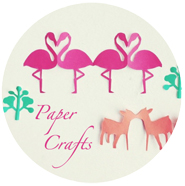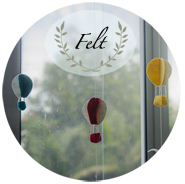
‘We weren’t poor but we weren’t rich, so we didn’t have any real heirlooms to speak of. But before the house got sold, we all went back and looked around (it’d been vacant for a while) and I just sat in the kitchen and cried, and picked up some old drinking glasses and plates, just to remember my grandma by.
We also found a pile of her kebayas, so one of my aunts collected them and distributed them to each of the ladies in the family. So I have a set too. I also asked to borrow my grandma’s kerosang to use on my kebaya at my wedding. It made me feel very comforted that Mama was with me in spirit on my big day.”
‘Today, some frown at me when I’m out with my family. Because we’re an inter-racial family. I wonder if my ancestors, back in the 15th and 16th century, had to undergo the same stares because they were Chinese and Malay/Indonesian families. It’s thanks to them that we have a Peranakan community today.
Most Peranakans (Nonyas for the ladies, and Babas for the men) trace their roots to the Straits Settlements (if you weren’t paying attention in History class, that’s Penang, Malacca and Singapore for you); my own family is from Penang, though sadly, that’s about as much as I know.
We weren’t full fledged ‘live in Joo Chiat shophouse, wear kebayas and bake kueh-kueh all the time’ kind of Peranakan family. We were more of the ‘cook a couple of Nonya dishes, like our spices, sprinkle a few Malay words in our daily speak’ kind.
But Peranakan I am, no matter how watered down, and this is my story.’

What is your earliest memory of your heritage?
‘I have so many memories of my childhood, and the bulk of them are of the years I spent at my grandmother’s house in Katong. I was cared for by my grandmother, Mama, and she cooked the most amazing dishes.
Mama never had a food processor or a grinder or a blender. Everything was done by hand, the old fashioned way, with a lesung. I remember her squatting in the kitchen pounding away. Chilli, turmeric, ginger, garlic…If I close my eyes and think hard, I think I will be able to hear the sounds.
She always wore her kebaya for big occasions, but for daily outings, she would wear her muah (the skirt that goes with the kebaya) with a self-sewn top. She made all her clothes; I remember my parents will buy her cloth every year.
I never knew I was ‘Nonya’ / ‘Peranakan’ / ‘Baba’ until much older. All I knew was that I was ‘different’. My friends didn’t seem to know what Garam Assam or Sambal Pedas were and I found that to be strange because my grandmother cooked them so often that I thought they were very common dishes. Come to think of it, I had all these spicy dishes even as a kid! The adults would eat with their fingers at dinner time, but the kids used utensils. Except if they wanted to appear grown up.
I also found it strange that my friends referred to objects by different names that I. “Towel” to me was “tuala”. To wash one’s bum after a poo was “cebok”, armpit was “ketiak”, to get a second helping of rice was “tam bah nasi”. I wondered why we called our aunts Mak Koh/ Ko Besar and Koh-chik. It was only in my teens that I realized they were Malay words; I always thought they were Hokkien words, because that was the main language my grandmother and I conversed in.’

‘I also remembered playing cherki with her while waiting for my school bus. It’s funny because none of her children know how to play it. and I was the only grandchild out of 14 who knew. I would like to think that I was the closest one to her, because I stayed the longest with her.’
Of all the things you have learnt from your parents (in terms of tradition or culture), which do you feel was the most valuable?
‘They were more family oriented. My parents always reminded me to respect my elders. Everyone older than us had to be greeted and invited to eat at meals (e.g, “Kong Kong jiak, Mama jiak, Dad jiak, Ma jiak) – so the youngest in the family would have a long list of people to address before actually eating!’

What is that one thing that you intend to pass down to your children in regards to your heritage?
‘I will definitely pass down my grandmother’s kebaya to my girls. And my wedding kebayas. My husband is French-Canadian, I am Peranakan-Chinese, so the kids are um, well, a good mix of stuff. I want to be able to tell them as much of their culture as possible, so when they are asked, they wouldn’t simply say, “We are Eurasian”, but rather, would be able to elaborate on their rich backgrounds. Oh and if they want, they can have my lesung as well :)’

***
Adora shares her light-hearted stories on everyday life as a mum of her lovely girls at her blog http://www.gingerbreadmum.com.





















Pretty mama Adora! Weet!
Madeline´s last blog post ..Baby Boy’s 1st CNY in the Year of the Horse
Wah Rachel! You made my home look like a Bukit Timah condo surrounded by lush greenery! Thanks for this lovely post
Adora´s last blog post ..Why I am not an amazing mum
Beautiful memories, Adora!!!
Diana Gale´s last blog post ..braised chicken with bitter gourd